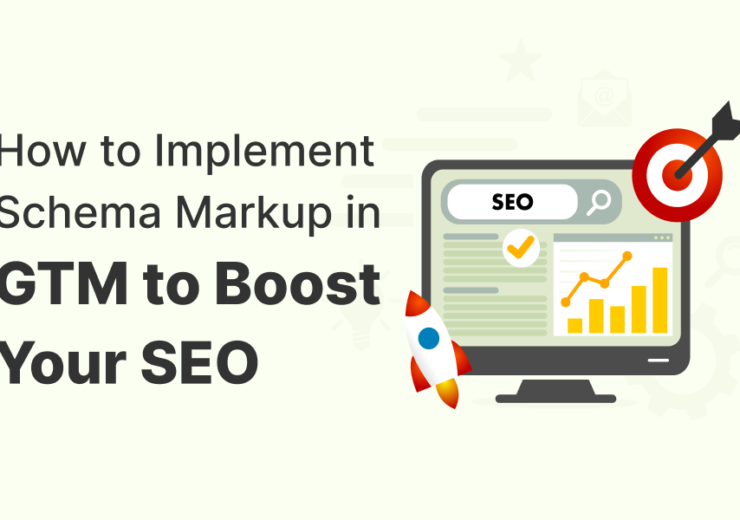Why Your Competitor Ranks on Page One and How You Can Beat Them
Table of Contents
- Introduction
- The Importance of Page One Rankings
- How Competitors Win with On-Page SEO Strategies
- Content Relevance and Depth: The Core Ranking Factor
- Backlinks, Authority, and Brand Trust Signals
- Technical SEO Enhancements That Give Competitors an Edge
- The Role of User Experience and Core Web Vitals in Rankings
- Local SEO and Voice Search, Hidden Growth Opportunities
- How Trading and E-commerce Sites Can Outperform Competitors
- Building an Action Plan to Move Ahead
- Final Thought
- Frequently Asked Questions
1. Introduction
Ranking on page one of Google is every business’s dream, but only a few succeed. If you have wondered, “Why does my competitor always outrank me?” The answer lies in SEO strategies, authority building, and user experience.
Competitors that understand on-page SEO and continuously refine their approach dominate the search results. With the right improvements, you can not only catch up but also beat them in rankings and visibility. For expert help, explore On Page SEO
2. The Importance of Page One Rankings
Being on page one means:
- 70% of clicks go to top results
- Better brand authority and customer trust
- Higher conversions compared to page two results
In trading, ecommerce, or service industries, ranking on page one can make or break your online presence.
3. How Competitors Win with On-Page SEO Strategies
Competitors often apply structured on-page SEO techniques that many businesses overlook. These include:
- Optimising titles, headings, and meta descriptions
- Using targeted keywords naturally in content
- Placing internal links to improve site navigation
- Adding schema markup for rich snippets
For example, companies using comprehensive on-page SEO, like Kantha Digital’s services
4. Content Relevance and Depth, The Core Ranking Factor
Google prioritises websites that deliver in-depth, valuable, and relevant content. Your competitors may rank higher because they:
- Write longer, research-driven blogs
- Answer audience questions with clarity
- Use trading, ecommerce, and industry keywords naturally
- Provide updated insights regularly
If your content is shallow or outdated, Google will favour your competitors who deliver greater depth and authority.
5. Backlinks, Authority, and Brand Trust Signals
Backlinks remain a strong ranking factor. Competitors often:
- Gain links from high-authority domains
- Build brand mentions in industry publications
- Use guest posting to expand authority
Additionally, trust signals such as secure websites, customer reviews, and transparent policies push competitors higher in rankings.
6. Technical SEO Enhancements That Give Competitors an Edge
Behind the scenes, technical SEO helps websites stay on top. Competitors with strong rankings usually:
- Fix crawling and indexing issues
- Maintain fast loading speeds
- Use HTTPS security
- Optimise mobile experiences
Trading and e-commerce websites cannot afford to neglect technical SEO if they want to overtake competitors.
7. The Role of User Experience and Core Web Vitals in Rankings
Google rewards websites that deliver smooth and engaging experiences. Competitors outperform because they:
- Improve loading speed, interactivity, and layout stability
- Simplify navigation for users
- Create mobile-first websites
- Reduce bounce rates by offering valuable content
Core Web Vitals are becoming essential for success in 2025 and beyond.
8. Local SEO and Voice Search, Hidden Growth Opportunities
Many businesses miss out on local SEO and voice search optimisation, but competitors who leverage these areas gain extra visibility.
To compete:
- Optimise for location-based searches
- Claim and update Google Business Profile
- Add conversational FAQs to capture voice queries
- Use trading-related keywords like “best trading agency near me”
Voice search and local SEO are growth opportunities your competitors may already be using.
9. How Trading and E-commerce Sites Can Outperform Competitors
Trading and e-commerce industries face high competition, but you can outrank others by:
- Using structured data for products and services
- Writing keyword-rich product descriptions
- Publishing detailed trading strategies and insights
- Optimising payment security and transparency
- Adding customer reviews to boost credibility
These practices directly increase click-through rates and conversions while helping you gain SEO dominance.
10. Building an Action Plan to Move Ahead
Here’s how to build a winning SEO plan to outrank competitors:
- Conduct regular SEO audits
- Improve content quality with depth and relevance
- Invest in on-page SEO optimisation
- Build backlinks through authority sites
- Monitor competitor strategies and adjust accordingly
By consistently applying these steps, you can overtake your competitors and establish your brand as an authority.
11. Final Thought
Your competitors rank on page one not because they are unbeatable, but because they apply consistent SEO strategies, technical improvements, and content optimization.
With the right focus on on-page SEO, content depth, backlinks, and user experience, you can move ahead of them. Partnering with experts ensures your site does not just compete, but dominates.
12. Frequently Asked Questions(FAQ)
Q-1 Why does my competitor rank higher even though we sell the same products?
A1. They likely use stronger SEO practices such as optimised content, backlinks, and better user experience.
Q-2 How long does it take to beat a competitor in SEO?
A2. It usually takes 3–6 months of consistent optimisation, depending on your industry competition.
Q-3 Is on-page SEO enough to outrank competitors?
A3. On-page SEO is the foundation, but combining it with backlinks, technical SEO, and content marketing brings long-term success.
Q-4 Do trading websites need SEO?
A4. Yes, trading websites rely heavily on SEO to attract investors, customers, and industry authority.

